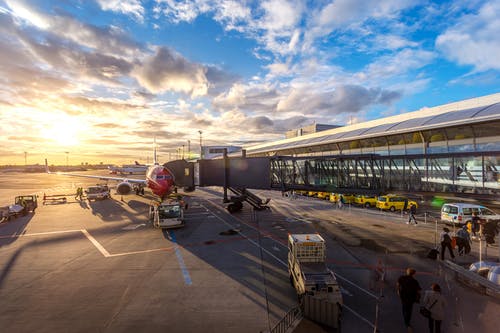It is not news that the aviation industry worldwide is directly affected by the coronavirus pandemic. Airports have been closed since March 23rd, with only evacuation flights, emergency, and essential flights allowed to commute. Essential flights include:
Read more about Travel and Tourism
- Aircraft in state of emergency
- Over flights
- Operations related to humanitarian aid, medical and relief flights
- Alternate aerodromes identified in the flight plan (including those being used for extended diversion time operations)
- Technical stop where passengers do not disembark
- Cargo flights
- Other safety related operations
Other than the above, salaries of airline workers were slashed and some have been forced to go on unpaid leave because airports were closed. Moreover, what was meant to be a suspension of all domestic and international flights has extended beyond expectations. On the 6th of May, the Nigerian Civil and Aviation Authority (NCAA) announced another extension of the flight ban restriction on domestic flights till Sunday, June 7th. However, this date is subject to change again depending on the preparedness of airlines.
Some basic guidelines have been put in place by NCAA to guide the preparation of airlines to reopen in Nigeria. Below are a few:
- All airports must fumigate and disinfect the airport/terminal prior to commencement of operations.
- All airports must have procedures for routine cleaning and disinfection of frequently touched/exposed surfaces and security equipment including trays, as well as measures to protect screeners/security personnel and passenger/staff (where applicable) during operations to reduce the spread of the communicable disease (COVID-19).
- Airports must have procedures for handling suspect cases who might have failed temperature screening and requiring further medical attention.
- All airports should have personal protective equipment (PPE) in sufficient number for screeners/security personnel before resumption of duty.
- Staff involved in security operations should be verifiably trained on the new requirements for safe operations during the outbreaks of communicable disease by the national health authorities.
- Provision of hand sanitizers and disinfection products at the designated points in the airport/terminal prior to commencement of operations is mandatory.
- Airports must set up de-gowning areas for security personnel to divest and dispose PPE. They must also develop procedures for the use and disposal of used PPEs.
Once all these guidelines and requirements are adhered to, airports will be open for operation. With social distancing of 2 metres apart, you can expect long queues at the airport and a lot of time spent before boarding. The key is to ensure passengers are educated on the risks of flying this season and to ensure their safety within the premises.
Sign up to the Connect Nigeria daily newsletter
It is clear that for domestic flights of passengers and tourists within the country to resume, it won’t be business as usual. For now, there is a ray of sunshine as airlines anticipate resumption of domestic travel. With the interstate border lockdown and travellers itching to travel, there might be a rush for domestic flights. So get ready to embrace a new and improved Nigerian aviation industry.
Source
NCAA website
Got a suggestion? Contact us: editor at connectnigeria dot com

